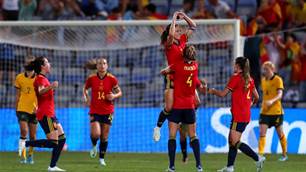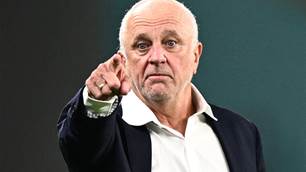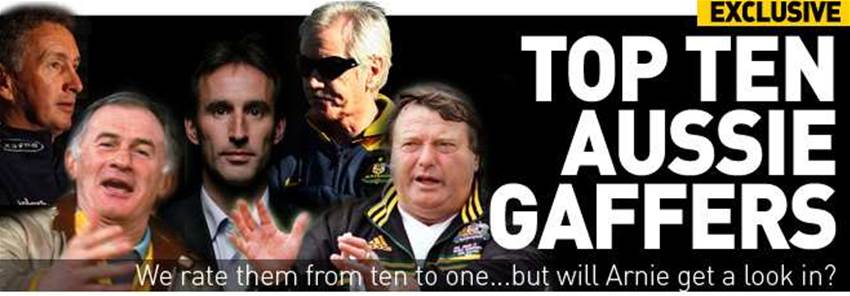EXCLUSIVE: Australia has produced talented managers who’ve made their mark at World Cups, Club World Cups, Asian Champions Leagues, A-Leagues, NSLs and Asian Cups – we rate them from ten to one. But this was no easy task as most if not all managers found success in different competitions over different times with differing sets of squads – and resources – at their disposal. It was tough to lock down the final ten with some well-known names just missing out. So here it is… but what do you think?

10: Aurelio Vidmar
His coaching of Adelaide United in 2008 was a masterclass as the relatively inexperienced coach took the unheralded A-League side all the way to the Asian Champions League final.
This was no mean feat given the latter stages of the tournament were played while the club was battling on the A-League front. More than this, the style of play caught the eye as they defeated the likes of Pohang Steelers home and away, Kashima Antlers in the quarters and Bunyodkor (featuring Rivaldo) in the semis before Gamba Osaka put an end to their eye-catching adventure.
He also took Adelaide to the Club World Cup in 2008 where the side performed creditably defeating Al Ahly for fifth spot.
Vidmar is now guiding the next generation of Socceroos as Olyroo coach.
Continued on next page...

9: Les Scheinflug
A controversial pick for some, but he is a national coach who guided an Australian national side to a FIFA World Cup final. How many coaches can say that?
Sure, the Socceroos had made a Confederations Cup final in 1997 but this was the 1999 U-17 FIFA World Cup final against Brazil in New Zealand.
A loss yes but a terrific campaign that saw the Aussies take some big scalps along the way including Thomas Hitzelsperger’s Germany 2-1 and Landon Donovan’s USA in the semis.
Scheinflug had much success with the youth teams of Australia over many years even if some pointed to the quality of players as the main reason. But his record still stands.
He was a former a NSL coach of the year and enjoyed success at Marconi during the 1970s and 1980s.
Continued on next page...

8: Frank Arok
“Mad Dog” was a one-off – but that shouldn’t mask the fact he was a master motivator and tactically astute.
The Socceroos never qualified for a World Cup under Arok – he got them close against Scotland in the 1985 qualifiers - but he masterminded the famous 1988 victory over then-World Champions Argentina in Sydney.
The Aussies defeated Nigeria and Yugoslavia later that year at the Seoul Olympics to cap a stellar year for Arok but he failed again in 1989 as the Socceroos were edged out by a Israel at the SFS.
At club level this one-time NSL coach of the year had stints with St George Saints, South Melbourne and Gippy Falcons amongst others. These days he’s retired and living in Serbia.
Continued on next page...

7: Steve Darby
Steve who? To many A-League fans this name would be unfamiliar, but for those who know football, the former NSL and ASF (FFA) staff coach has been one of the few Aussies (put Scott O’Donnell and Darren Stewart in that category, too) to have survived and succeeded in the cut-throat leagues of south-east Asia.
Darby has won both the Malaysian and Singapore League and FA Cups and coached Vietnam women’s national side to a gold medal at the SEA Games. He’s also had success in the AFC Cup with clubs from the M- and S-Leagues.
Experienced with a UEFA ‘A’ licence and an AFC coaching instructor, the bi-lingual Darby has just finished up as assistant to Bryan Robson in the Thai national team and was unveiled as new coach of Indian club Mohun Bagan this week.
Continued on next page...

6: Eddie Thomson
Generally regarded by players as one of the best man-managers in the game, Thomson took over from Frank Arok in the national job after being an assistant.
He was immediately successful at the Barcelona 1992 Olympics. First, the Olyroos under Thomson stunned a star-studded Holland to qualify for the Olympics. Then the Australians surprised many by making the semi-finals before ending up fourth in the tournament.
The Socceroos were not disgraced a year later when Thomson’s side were edged out by Maradona’s Argentina in World Cup 1994 qualifiers (a deflected goal away in South America the difference).
Thomson left to coach in the J-League – one of the few local coaches to have had that honour - as Terry Venables took over the Socceroos in 1997.
At club level, Thomson found great success with Sydney City in the early to mid-1980s as the club became a powerhouse of the NSL. Tragically, Thomson passed away of cancer in 2003.
Continued on next page...

5: Ernie Merrick
It’s hard to believe someone who has won two A-League grand finals and two Premierships in the A-League – as well as a long stint grooming the next generation at the VIS – could be banging on the doors looking for work in Scotland.
Sacked by Victory earlier this year after six success laden seasons with Victory, Merrick nevertheless has the runs on the board. What’s more, he pledged and played an attacking style of game despite his stoic public persona. Still remains the most successful A-League manager to date.
Continued on next page...

4: Zoran Matic
Once spoken of as a possible Socceroo manager in the 1999s, Matic oversaw the Adelaide glory years with City in the early to mid-90s. Like Merrick, personable away from the game but in the dugout, his tough exterior was reflected in his teams’ super-organisation and discipline. It worked well.
Matic was twice voted NSL coach of the year and he mentored the likes of Alex Tobin and Aurelio Vidmar during around a decade at the Zebras, where his side became finals regulars.
He won the NSL national championship in the 1980s after taking over a struggling Adelaide City. By the 1990s, he’d taken out two more NSL grand finals and finished runner-up a further two times.
Not bad considering he divided his time between football and his building business. Matic survived an industrial accident in 2006 and retains links with City at board level while continuing to work outside of football.
Continued on next page...

3: Tommy Sermanni
Two consecutive World Cup quarter-final finishes and a stunning Asian Cup title – the first in history - all in the last four years. Not a bad record of success for the former NSL player who has overseen a revolution with the Aussie women’s game in recent years.
As the Matildas now move into the world’s top ten rankings, Sermanni’s contribution is worth rating. He has the side playing a technically superior, modern style of game. And he took the bold step of pledging his faith and confidence in an inexperienced group of players with his latest World Cup squad.
And this vision for the future was highlighted perfectly with prodigiously talented Caitlin Foord winning FIFA’s gong for best young player at the 2011 Germany World Cup – a player who Sermanni picked despite her lack of experience who went on to play in all four World Cup games.
But winning the Asian Cup last year was probably his greatest achievement for this manager with the Midas touch. But can he now win Olympics Gold?
Continued on next page...

2: Ange Postecoglou
Postecoglou may not have taken the Socceroos to a World Cup, but his CV is hugely impressive for such a young manager. He was one of the youngest coaches to win an NSL grand final in 1998 (aged in his early 30s) as boss of powerhouse South Melbourne. He won it again in 1999 with the same side before taking them on an adventure of a lifetime at the Club World Championship in Rio at the turn of the new millennium.
South were far from disgraced against the likes of Manchester United and Vasco despite losing all their group games. He soon joined the national youth set-up, where he toiled to improve players in a system lacking resources and direction (Australia’s victory over Brazil in 2003 at the U-20 World Cup was one particular highlight).
After seven years in the role and following a stint as a Fox Sports pundit (and a brief spell in Greece) he was handed the reins at Brisbane Roar. After over-seeing an extremely tricky clear-out of some older names, Postecoglou rejuvenated the club in dramatic fashion to win a premier’s plate and grand final in his first full season at the club. And he did with a style of play that reshaped ideas on how Australian teams can play.
Quite simply, the Melbourne-born gaffer can in the coming years become the greatest ever manager we’ve produced.
Continued on next page...

1: Rale Rasic
This name is forever etched in our football history for guiding the Socceroos on a mammoth qualification journey for West Germany 1974 – Australia’s first ever foray on the world’s biggest stage.
And with a squad of mainly part-time players scattered across various state leagues (the NSL didn’t kick off till 1977), Rasic guided the green and gold to a respectable finish against high class opposition before, inexplicably, he was dumped post-World Cup.
Rasic also managed a host of local clubs but it was his five-year stint with the Socceroos from 1969 that is most fondly remembered. In 2001 he was awarded the Australian Sports Medal and Centenary Medal for services to the game and to this day remains a legend of the sport.
Related Articles

Matildas 'have parked' 7-0 thrashing: 'We're one of the best pressing teams in the world'

Socceroos coach says Argentina can only 'play two ways'













